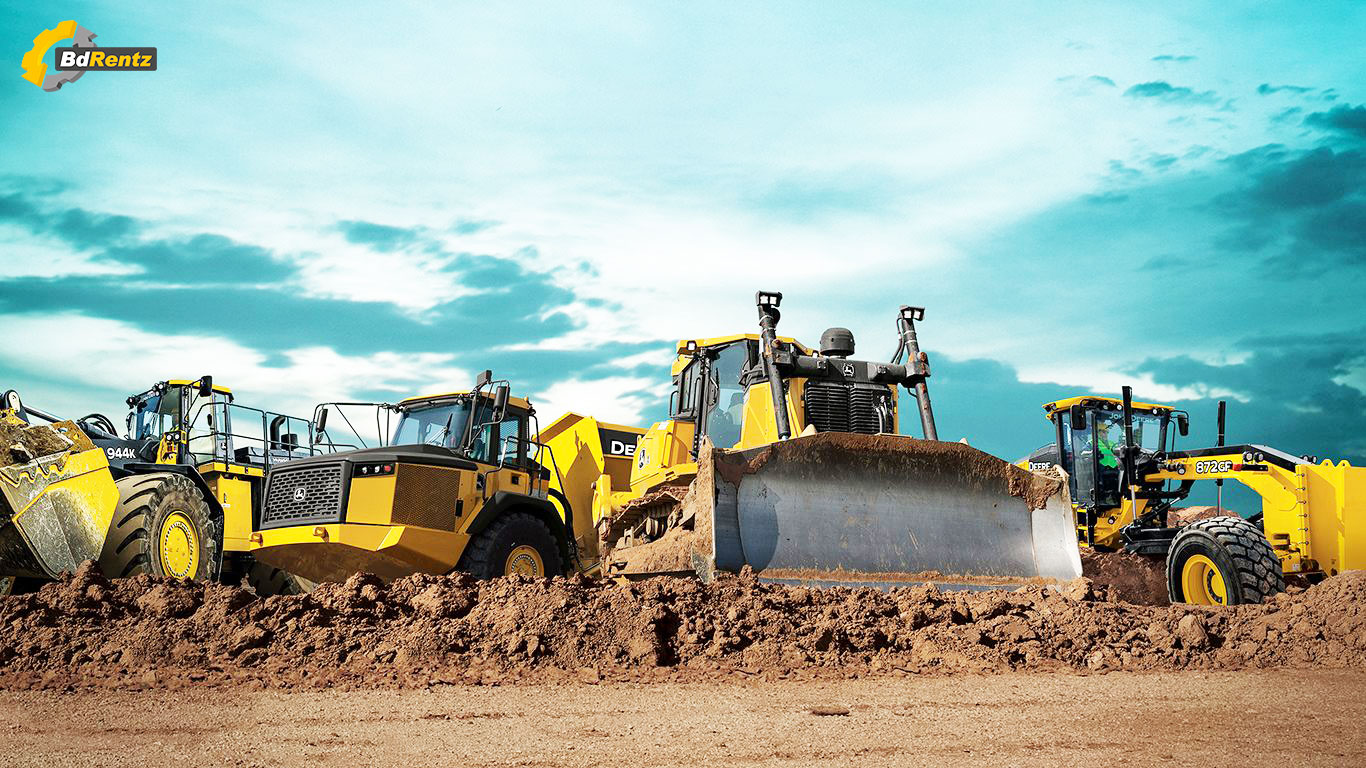Heavy Equipment Rental: Big Equipment for Any Kind Of Construction Project
Heavy Equipment Rental: Big Equipment for Any Kind Of Construction Project
Blog Article
Optimize Your Budget Plan by Recognizing the Costs Connected With Building Tools Services
Understanding the complete scope of expenses associated with construction equipment leasings is vital for maximizing your budget. What strategies can be used to successfully manage these expenses and make sure a much more reliable rental experience?
Overview of Rental Expenses
When thinking about construction devices leasings, recognizing the associated costs is paramount for efficient budgeting and project preparation. Rental prices can vary dramatically based on a number of aspects, consisting of equipment kind, period of service, and area. The preliminary rental cost typically reflects the tools's market need and its connected operational capacities, affecting the general cost.
Along with the base rental price, secondary expenses may emerge, such as transportation costs, gas surcharges, and upkeep charges. It is necessary to account for these extra expenses to precisely evaluate the total price of renting devices. Additionally, the rental duration can impact rates; longer rentals might get affordable prices, while short-term rentals could sustain higher daily costs.

Breakdown of Rental Rates
A thorough understanding of rental rates is necessary for service providers and project managers aiming to maximize their budgets. Rental rates for building and construction equipment normally contain several parts, including base rates, time-based charges, and use fees.
Base rates are the core costs connected with the service of the devices, usually figured out by the type and dimension of the machinery. These prices can vary dramatically, influenced by aspects such as devices need, availability, and regional market trends. Time-based costs, which might be daily, weekly, or monthly, serve to accommodate various project timelines and rental periods.
In addition, rental prices might include usage costs, which apply when devices is made use of past a specified threshold, making certain that the rental company can make up damage. Seasonal demand variations can also influence rental prices, with peak building and construction periods generally commanding higher rates.
In addition, understanding the rental firm's policies regarding maintenance and insurance can offer additional understanding right into the total cost structure. By assessing these parts, service providers can make enlightened choices, making certain the option of rental equipment straightens with both job demands and budget plan constraints.
Additional Charges to Think About
Understanding the ins and outs of extra charges is crucial for service providers to manage their overall leasing costs effectively. Beyond the basic rental prices, various supplemental costs can dramatically impact the overall price of tools leasing. These charges typically include shipment and pickup charges, which can vary based on range and logistics included in delivering the tools to and from the work site.
Moreover, some rental firms may impose fuel surcharges if the tools is returned with much less gas than when rented. It is likewise necessary to know possible cleaning fees, specifically for customized tools that needs comprehensive upkeep after usage.

Thoroughly examining the rental contract and clearing up these extra fees ahead of time can read the full info here assist contractors guarantee and prevent unexpected expenses that budgets stay intact throughout the job lifecycle.
Maintenance and Repair Expenses
Regular upkeep and fixing costs are frequently ignored factors that can significantly affect the general price of building equipment rentals. When renting out equipment, it is important to take into consideration not only the rental costs but additionally the possible expenses connected with maintaining the equipment in ideal operating condition.
Many rental Our site business include standard maintenance as component of the rental arrangement; nonetheless, much more extensive repairs or unanticipated malfunctions can bring about additional expenses. It's necessary to evaluate the rental agreement very carefully to understand what maintenance services are covered and what duties drop on the tenant.
Moreover, equipment that is not well-maintained can cause inefficiencies on the task site, potentially creating hold-ups and increasing job costs. To alleviate these risks, it is a good idea to perform routine assessments and preserve open communication with the rental copyright regarding any issues that occur throughout use.
Insurance and Obligation Expenses
Insurance coverage and obligation costs are essential parts that can considerably influence the general cost of building devices services (construction equipment rentals). These expenses make sure that both the rental business and the client are shielded from potential economic losses developing from accidents, damage, or burglary during the rental period

Furthermore, clients need to know any deductibles or exclusions in the insurance coverage, as these can influence possible out-of-pocket costs. Comprehending the conditions of any type of insurance Look At This policy protection is important to stay clear of unforeseen expenses. Inevitably, budgeting for insurance coverage and obligation expenses can help guarantee a smoother rental experience and protect versus monetary dangers linked with building tasks.
Verdict
In final thought, a thorough understanding of the prices associated with building tools services is crucial for efficient budget monitoring. By analyzing rental rates, added costs, upkeep expenses, and insurance coverage organizations, people and needs can minimize unexpected expenditures. This critical approach not only enhances cost-effectiveness but also makes certain that jobs advance smoothly and successfully. Ultimately, informed decision-making concerning devices rentals adds to the overall success of building ventures.
Rental prices can vary substantially based on numerous factors, consisting of equipment kind, period of rental, and area (dozer rental). The rental duration can influence pricing; longer rentals may certify for affordable prices, while temporary services might incur higher daily fees
By carrying out detailed research and involving with reliable rental firms, specialists can properly navigate the intricacies of rental pricing, eventually optimizing their monetary sources.
Beyond the conventional rental prices, different extra charges can dramatically affect the overall cost of equipment leasing. Rental companies typically offer liability insurance policy that covers injuries to 3rd events or damage to building, while equipment damages insurance policy can cover the price of repair work or replacement if the rented out equipment is harmed.
Report this page